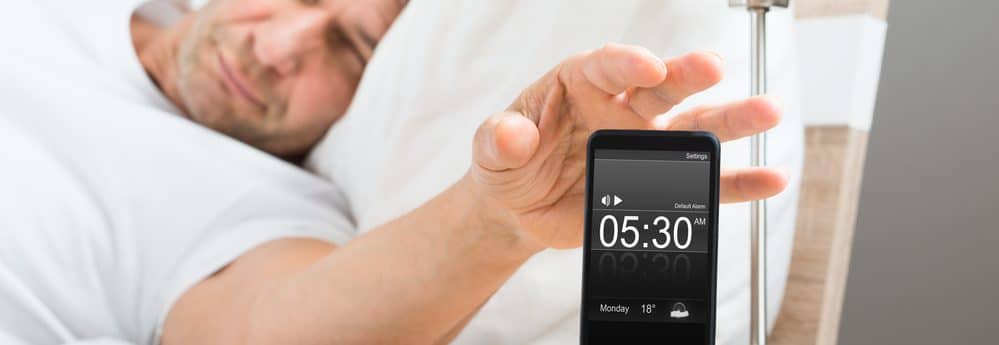Millions of people are finding it more and more difficult to fall asleep and stay asleep every night, thereby risking the body’s health due to lack of sleep. Why? There are a myriad of reasons for insomnia and each person is different, so one person might need one thing and another might require something completely different. It is up to the individual to investigate on their own. Try various strategies to pinpoint the reason or reasons why you are not sleeping well. If you do not at least try different things, nothing will change. So get to it and start your exploration into finding the reason why you aren’t getting sufficient sleep every night. To help you out, here are 5 suggestions for getting a better night of “shut eye” every night.
1. Diet
If you’re having problems falling asleep, we recommend that you delve into exactly what you are putting in your body. Are you drinking too much coffee? If so, the caffeine might be the culprit. Caffeine is a stimulant found in coffee, some soft drinks and energy drinks, and not at all conducive to relaxation, let alone sleep. Try reducing caffeine slowly, rather than going “cold turkey” so that your body gradually becomes accustomed to the reduction in caffeine and eventually the elimination of caffeine. (By the way, remember to drink lots of water.) Eliminating the caffeine slowly this way, will be less shocking and easier psychologically. Caffeine isn’t just found in beverages, so keep an eye on this popular stimulant also found in foods. Caffeine in coffee can be lurking around any baked goods with chocolate because coffee enhances the flavor of chocolate. (Note: chocolate also contains a certain amount of caffeine) Another example is barbecue sauce, which can oftentimes contain coffee. There are other examples of food/dishes with caffeine so please do your research in order to find the right diet for you.
2. Exercise
Many people work in offices and spend all day sitting at a desk. Later on after work, they tend to go home and do the couch potato thing, which is sitting/laying around being as inactive as they possibly can be until it’s time for bed. This sort of sedentary behavior is not only bad for your health, it is also bad for your sleep hygiene. The more you move your body around the more happy it is, being able to exert pent up energy it accumulated during the day. When the body gets very little physical activity, it isn’t able to express its physical nature and as a result, your sleep goes down the drain. It may seem difficult at first but try to grab a nice brisk walk during your breaks at work. If this is not possible, exercise right after work. Do not go home before you do this because it will be too tempting to leave the comfort of your sofa, your bed, your favorite comfy chair, etc.
3. Keep Your Bedroom Cool in Temperature
This tip may sound outrageous to some skeptics but keeping the room temperature cool improves quality and longevity of the sleep cycle. When the room where you are sleeping is too hot, it becomes very difficult to fall asleep because your mind is bothered that your body is fidgeting, sweating, squirming, etc. This agitation is certainly not welcome if you’re attempting to reach a level of calm and relaxation. It is suggested to keep the room temperature between 15C to 20C. Your body cools naturally as the evening approaches and with a proper room temperature, your sleep will be sound and uninterrupted.
4. Avoid Blue Light from screens of televisions, computers, mobile phones and other devices
Avoiding blue light is practically impossible with all of the devices we use constantly. Modern times does not necessarily mean modernity for our knowledge of health issues, however. We must realize that our technology emits blue light, which suppresses the production of melatonin. You see, this is the kind of response we have when first waking up in the morning, at day break. In order to adhere to a healthy functioning circadian rhythm, melatonin is reduced early in the day, then later in the evening, melatonin production is increased to alert your body that it is time to sleep. Keeping a consistent and reasonable circadian rhythm will help you avoid being awake in the middle of the night, twiddling your thumbs. Do this by eliminating exposure to blue light several hours before bedtime.
5. Meditation
Arguably, meditation is the most effective way to combat insomnia, as well as forwarding you on your spiritual journey. Meditation is not something to be afraid of, or to malign because you think you cannot do it correctly. Forget this defeatist mentality and get into a form of meditation that is right for you. Perhaps earlier you did try it but felt as if nothing happened, you couldn’t get into the “zone” or you just simply couldn’t sit still, focus and calm your mind. Not a problem, you can always do something like a guided “walking meditation” where you take a walk and become aware and mindful of your steps and your surroundings. There’s something about meditation that, whichever method you use, it has an undeniable way to relax the mind, body and spirit. This is something that if practiced regularly, will most certainly lead to an exemplary sleep pattern, where you will get an ample amount of sleep in order to maintain a high level of health.





